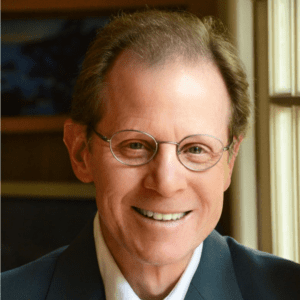It’s one thing to throw around the scientific-sounding language of brain science, it’s another to actually develop concrete clinical procedures based on our advancing understanding of the brain that make therapy more effective. Dan Siegel, author of Mindsight and one of the pioneers in the field of interpersonal neurobiology, organizes his assessment procedures with new clients not around coming up with a DSM diagnosis, but in finding what specific impairments in brain integration should be the focus of treatment.
In this brief video clip, Dan describes an eventful first session with an emotionally disconnected attorney who announces, “I feel kind of like I’m dead even though I’m alive . . . I wonder if there’s any way I can feel more alive.” Dan describes the procedure he uses to examine the various domains of brain integration to understand the limits of the man’s present functioning and what therapy might have to offer him. Ultimately he announces to the man, “I have a feeling that you’ve been living with half a brain. It’s the half that doesn’t let you feel things . . . I don’t know if you need to live life like that.”
For Dan, the goal of therapy is to help clients balance the conflicting pulls towards both chaos and rigidity within themselves. “Sometimes we move toward rigidity—we feel stuck,” he writes in his Mindsight. “Other days we lean toward chaos—life feels unpredictable and out of control. But in general, when we are well and at ease, we sense the familiar but are not trapped by it. We live life as it unfolds, moment by moment, in a flowing journey between rigidity and chaos.”
Rich Simon
Richard Simon, PhD, founded Psychotherapy Networker and served as the editor for more than 40 years. He received every major magazine industry honor, including the National Magazine Award. Rich passed away November 2020, and we honor his memory and contributions to the field every day.
Dan Siegel
Dan Siegel, MD, is the founder and director of education of the Mindsight Institute and founding codirector of the Mindful Awareness Research Center at UCLA, where he was also coprincipal Investigator of the Center for Culture, Brain and Development and clinical professor of psychiatry at the School of Medicine. An award-winning educator, he’s the author of five New York Times bestsellers and over 15 other books, which have been translated into over 40 languages. As the founding editor of the Norton Professional Series on Interpersonal Neurobiology (IPNB), he’s overseen the publication of over 100 books in the transdisciplinary IPNB framework, which focuses on the mind and mental health. A graduate of Harvard Medical School, Dan completed his postgraduate training at UCLA specializing in pediatrics, and adult, adolescent, and child psychiatry. He was trained in attachment research and narrative analysis through a National Institute of Mental Health research training fellowship focusing on how relationships shape our autobiographical ways of making sense of our lives and influence our development across the lifespan.











